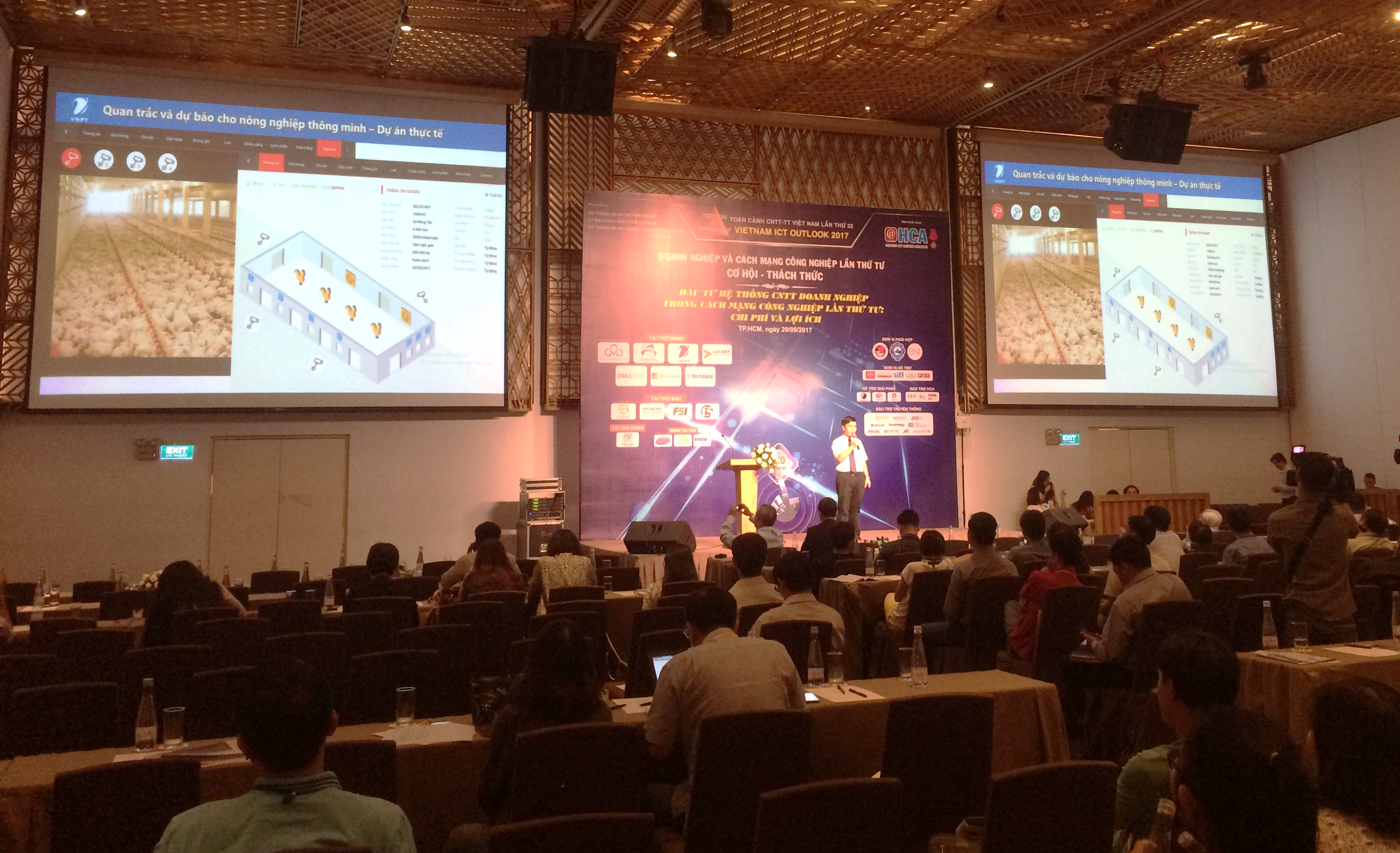Vietnam turns semiconductor vision into action
The global semiconductor industry is being reshaped by geopolitical tensions, shifting supply chains, and the surge of digital technologies.




VNPT (Vietnam Posts and Telecommunications Group), previously known as a state-owned telecom and postal business entity has introduced several new technology solutions that they studied by themselves in preparation for the fourth generation revolution.

We had a talk on this topic with Hoang Quoc Truong, Deputy Director of VNPT in Ho Chi Minh City.
The Vietnam Posts and Telecommunications Group (VNPT) is often known through telecommunication images but VNPT launched more technology products. What are reasons why VNPT changes direction?
Hoang Quoc Truong: The 4.0 industry wave is going strong in all industries. Being a strong infrastructure provider, VNPT has the ability to follow the fourth industrial revolution.
The first reason is to survive. If we just follow the traditional services, the business will lose their competitiveness when the market changes.
The second reason is that VNPT wants to support its customers. The Industry 4.0 will create many opportunities for businesses but if the enterprise have to take care of everything from infrastructure, application to business idea, it takes them a lot of resources. Therefore, why do not businesses leave the problem of infrastructure and services for VNPT to do? VNPT has enough resources to meet the needs of all companies.
What has VNPT prepared to support businesses in the new revolution?
Hoang Quoc Truong: VNPT has set up a strategic team to advise the board of directors about specific steps.
VNPT also established a research, application and exploitation center. This group also built member companies such as VNPT Technology which has studied hardware or smartphone products. In particular, VNPT Technology will focus on the IoT (Internet of Things) platform.
When did this transition begin and what are the achievements?
Hoang Quoc Truong: Since 2011, VNPT has diverted its model based new oriented models and we believe that VNPT is catching up on the development of this fourth industrial revolution.
One of VNPT's achievements is a smart agricultural solution based on IoT and developed on the basis of Smart Connected Platform. This solution focuses on automatic irrigation control systems, operation management, forecasting and connectivity.
The project has been researched for several years and has been officially launched since 2016. At present, this technology has been transferred to Delco chicken and melon farm in Hiep Hoa, Bac Giang province.
In addition, VNPT also develops some labs for researching and developing SmartCity. It also has many educational and medical labs. For example, VNPT's system helps to integrate prehistoric information or remote diagnosis.
VNPT is also developing security labs. The camera system supports image analysis and provides the necessary forecasts.
Currently, there are many foreign companies supplying intelligent technology equipment in Vietnam at low prices. Do you think VNPT should coperate with them to go fast and save money?
Hoang Quoc Truong: Deploying the existed products is very easy for VNPT but it means the lower level of ownership for that technology. However, if we insist on using only self-made equipment, we will inadvertently pull ourselves back. In Industry 4.0, the person who is faster will win. Therefore, the problem here is that VNPT have to balance development from both sides.
The global semiconductor industry is being reshaped by geopolitical tensions, shifting supply chains, and the surge of digital technologies.
The change in APA approval authority is expected to shorten processing time and enhance business proactiveness in international tax negotiations.
As hybrid cloud systems grow more complex, Vietnamese enterprises are struggling to detect cybersecurity threats moving laterally within their own networks.
The submission of the draft resolution on Vietnam’s international financial center to the National Assembly heralds a new developmental era for the country.
More than just running a 5-star resort, Kristian Petersen is redefining the art of hospitality with a humane and sustainable leadership philosophy.
For Tyna Huynh, co-founder of Drinkizz, organic is not just a food choice but a way of life that fosters a deep connection between people, nature and community.